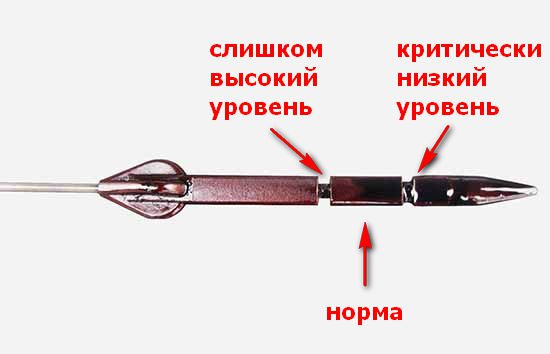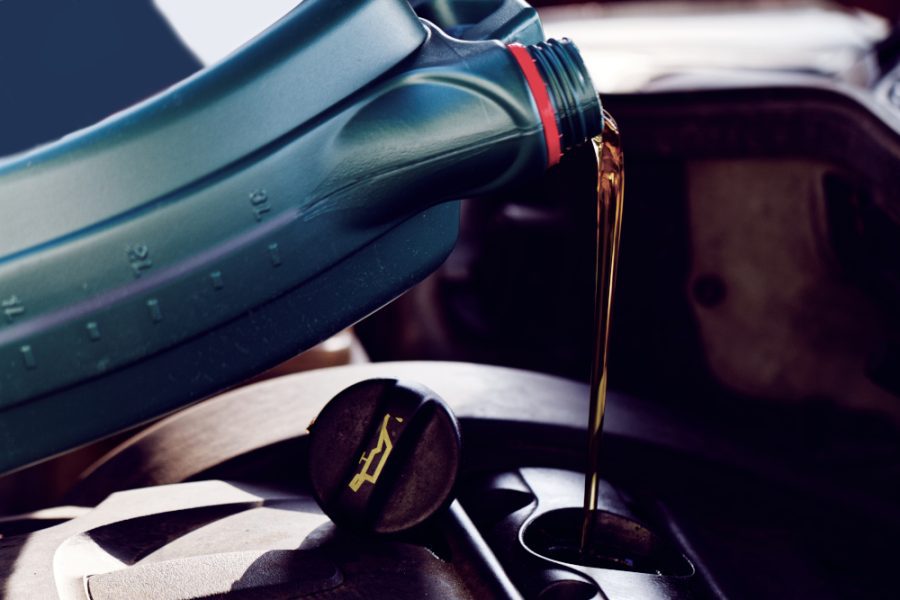
The engine oil level is too high. Why is there oil in the engine?
Content
As any motorist knows, too low an oil level can cause a lot of engine problems. However, the opposite is also increasingly being said - when the amount of engine oil does not decrease, but increases. This is especially true in diesel vehicles. What consequences? Why is there oil in the engine?
What will you learn from this post?
- What's the problem with adding engine oil?
- Why does the engine oil level rise?
- Excess oil in the engine - what is the danger?
Shortly speaking
The engine oil level rises on its own when another fluid, such as coolant or fuel, enters the lubrication system. The source of these leaks can be the cylinder head gasket (for coolant) or leaking piston rings (for fuel). In vehicles equipped with a particulate filter, dilution of the oil with another fluid is usually the result of improper combustion of the soot accumulated in the filter.
Why does the engine oil level rise when driving a car?
Every engine burns oil. Some units - such as Renault's 1.9 dCi, notorious for its lubrication problems - in fact, others are so small that they are hard to see. In general, however the loss of a small amount of engine oil is normal and should not be a cause for concern. Contrary to his arrival, the same spontaneous reproduction of the lubricant always indicates a malfunction. Why is there oil in the engine? The reason is simple to explain - because another working fluid gets into it.
Leakage of coolant into oil
The most common reason for the engine oil level to rise is coolant that enters the lubrication system through a damaged cylinder head gasket. This is indicated by a lighter color of the lubricant, as well as a significant loss of coolant in the expansion tank. Although the defect seems harmless and relatively easy to fix, it can be expensive. Repair involves several elements - the locksmith must not only replace the gasket, but usually also grind the head (this is the so-called head planning), clean or replace the guides, seals and valve seats. Consumption? High - rarely reaches a thousand zlotys.
Fuel in engine oil
Fuel is the second fluid that can enter the lubrication system. Most often this occurs in heavily worn older cars, both with gasoline and diesel engines. Sources of leaks: piston rings that let fuel into the combustion chamber - there it settles on the walls of the cylinder, and then flows into the oil pan.
The presence of fuel in engine oil is easy to detect. At the same time, the grease does not change color, as when mixed with a coolant, but has specific smell and more liquid, less sticky consistency.
Diluting the engine oil with another fluid will always have a negative effect on engine performance, because such grease does not provide adequate protectionespecially in the field of lubrication. Underestimating the problem will sooner or later lead to serious damage - it may even end in a complete jamming of the drive unit.

Do you have a DPF filter machine? Be careful!
In vehicles with a diesel engine, fuel, or rather diesel fuel, can also be in the lubrication system for another reason - improper "burnout" of the DPF filter. All diesel vehicles manufactured after 2006 are equipped with diesel particulate filters, that is, diesel particulate filters - that's when the Euro 4 standard came into force, which imposed on manufacturers the need to reduce exhaust emissions. The task of particulate filters is to trap soot particles that exit the exhaust system along with the exhaust gases.
Unfortunately, the DPF, like any filter, clogs over time. Its cleaning, colloquially known as "burnout", occurs automatically. The process is controlled by an on-board computer, which, according to a signal from sensors installed on the filter, supplies an increased dose of fuel to the combustion chamber. Its excess is not burned, but enters the exhaust system, where it spontaneously ignites... This raises the temperature of the exhaust gases and literally burns away the soot accumulated in the particulate filter.
Burnout DPF filter and excess oil in the engine
In theory, it sounds simple. However, in practice, particulate filter regeneration does not always work properly. This is because certain conditions are necessary for its execution − high engine rpm and constant travel speed are maintained for several minutes. When the driver brakes hard or stops at a traffic light, the soot burnout stops. Excess fuel does not enter the exhaust system, but remains in the cylinder, and then flows down the walls of the crankcase into the lubrication system. If it happens once or twice, no problem. Worse, if the filter burning process is regularly interrupted - then the engine oil level may rise significantly... The DPF condition should be especially taken into account by drivers who drive mainly in the city, because it is in such conditions that regeneration often fails.
What is the risk of excess engine oil?
Too high an engine oil level is just as bad for your car as too low. Especially if the lubricant is diluted with another liquid - then it loses its properties and does not provide adequate protection for the drive unit... But too much pure fresh oil can also be dangerous if we overdo it with oil. This is causing this pressure increase in the systemwhich could damage any seals and cause engine leakage. Too high a level of lubrication also adversely affects the operation of the crankshaft. In extreme situations on vehicles with a diesel engine, this can even lead to a dangerous malfunction called engine overclocking. We wrote about this in the text: Engine acceleration is a crazy diesel disease. What is it and why don't you want to experience it?
Of course, we are talking about a significant excess. Exceeding the limit by 0,5 liters should not interfere with the operation of the drive. Every machine has an oil pan that can hold an extra dose of oil, so adding even 1-2 liters is usually not a problem. “Usually” because it depends on the car model. Unfortunately, manufacturers do not indicate the size of the reserve, so it is still worth taking care of the appropriate oil level in the engine. It is supposed to be checked every 50 hours of driving.
Refueling, replacement? Top brands of motor oils, filters and other hydraulic fluids can be found at avtotachki.com.
